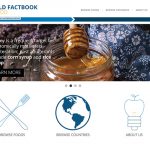Reducing Risk and Adding Value
All businesses and brands in the food supply chain are susceptible to fraud, and evidence shows the likelihood of it occurring increases day by day. It’s the businesses that are proactive in accepting the risk and who take steps to manage it that are the ones who will win.
The purpose of auditing and protecting the integrity of the supply chain is to provide all stakeholders with peace of mind that what they are dealing with is authentic. The impact of having your supply chain compromised is too great to ignore.
With origin fingerprinting, from product creation through to distribution to the end consumer, each supplier can be assured that they are part of a process that aims to keep transparency and consumer interests at the core of the process.
This auditing process can:
- Reduce risk exposure for directors and demonstrate good governance
- Deter fraud within the supply chain
- Mitigate the risk for supply chain partners
- Help exonerate innocent parties in a food fraud event
- Signal to consumers that the supply chain is robust
- Send the message that the brand and its products are worth protecting
Businesses in the agricultural and food services industry have never faced greater pressures than they do today. Rapid technological development, volatile economic landscapes and changes in the earth’s climate that effect—and sometimes destroy—agricultural yields all force the continual evolution of supply chains. As agribusiness continues to globalize, traversing countries and continents across the world, supply chains become more complex.
While globalization brings people together and fuels economic growth, it is also the reason that today’s businesses have never faced greater risk. The pressure to lower prices coincides with the need to protect the value of premium products, with products such as milk, olive oil, honey, fish, coffee and cocoa being the most vulnerable to food fraud. Consumers are concerned with the provenance of their food and demand proof of origin and truth to labelling from the brands they love. When the trust of consumers is broken, brands suffer irreparable blows to their reputation.
Such fraudulence inevitably has much broader implications for brands, tarnishing the reputation of the producers at the source who are responsible for the product, whether or not they are responsible for the adulteration of it.
That is why taking the steps to guarantee the integrity of their products is more important than ever for food services and supply companies, and why adding science to the supply chain is the way forward.








